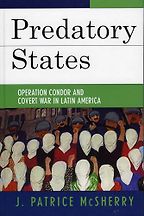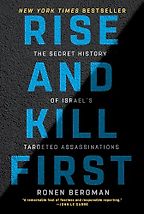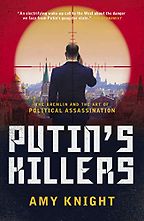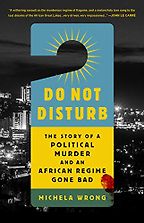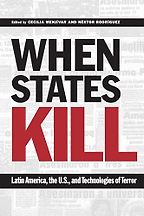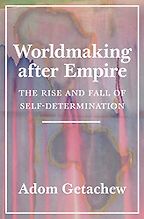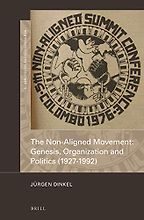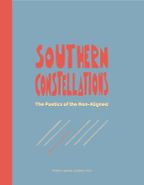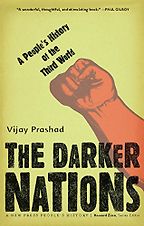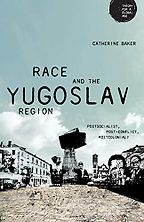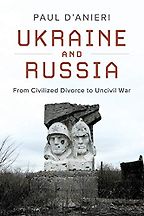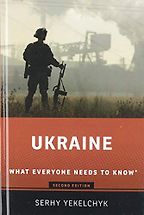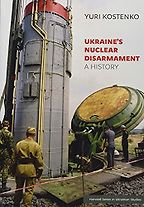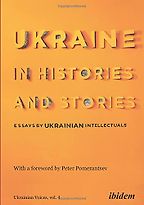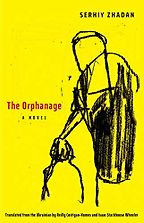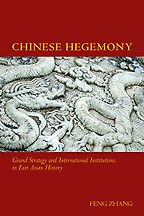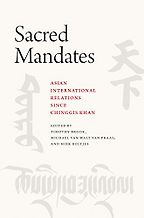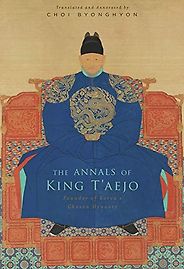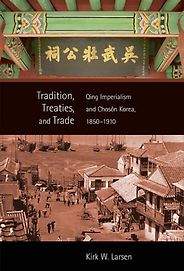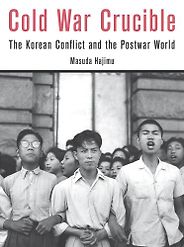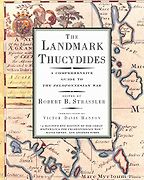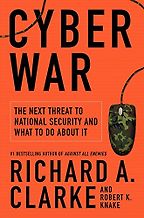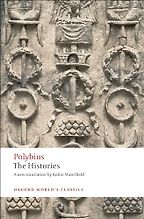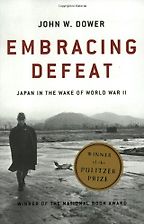Foreign Policy & International Relations
Last updated: January 04, 2026
Unsurprisingly, given its preponderant weight politically and economically, the role of the US in global affairs enjoys a corresponding focus in our interviews and book recommendations on foreign policy and international relations.
Gideon Rose looks at US foreign policy and A G Hopkins looks at American imperialism. Foreign correspondent Stephen Glain discusses US militarism and Lawrence Kaplan, columnist on the New Republic looks at US intervention. On US relations with specific countries and regions, Orville Schell, writer and activist focused on US-China relations, chooses his best books on China and the US, Journalist and Middle East correspondent, Patrick Cockburn, looks at the Iraq war, William LeoGrande chooses his best books on US relations with Latin America and Harvard professor Stephen Walt looks at US-Israel relations.
On the changing face of international relations and foreign policy, Ali Wayne, fellow at the RAND corporation, chooses his best books on the US’s increasingly challenged position in world affairs. Joseph Nye, former dean of Harvard’s Kennedy School, chooses his best books on global power, taking up a similar theme. Anne-Marie Slaughter, CEO of the New America think tank looks at 21st century foreign policy and Jennifer M Harris, fellow at the Council on Foreign Relations, looks at geoeconomics and the deployment of US economic power, rather than its military might in international affairs.
At a more general level, Jeremy Greenstock, former UK representative for Iraq, chooses his best books on diplomacy, Professor Charles Kupchan chooses his best on grand strategy and Geoff Berridge discusses why we need diplomats. Former UK diplomat, Mike Maclay, discusses the thrill of diplomacy. Turning to the world of intelligence, Pulitzer prize winning author Tim Weiner discusses the US intelligence services and Keith Jeffrey, author of the authorised history of MI6, talks about the UK intelligence services. Professor Rory Cormac chooses his best books on covert action.
-

1
Predatory States: Operation Condor and Covert War in Latin America
by J. Patrice McSherry -

2
Rise and Kill First: The Secret History of Israel's Targeted Assassinations
by Ronen Bergman -

3
Putin's Killers: The Kremlin and the Art of Political Assassination
by Amy Knight -

4
Do Not Disturb: The Story of a Political Murder and an African Regime Gone Bad
by Michela Wrong -

5
When States Kill: Latin America, the U.S., and Technologies of Terror
by Cecilia Menjívar & Néstor Rodríguez
The best books on State-Sponsored Assassination, recommended by Luca Trenta
The best books on State-Sponsored Assassination, recommended by Luca Trenta
Political assassinations are usually portrayed in the media as the actions of rogue states acting recklessly, outside the bounds of international law. But it is far more common than you might think, says Luca Trenta—international relations expert and the author of The President’s Kill List. Here, he recommends five books on state-sponsored assassinations and explains how different countries have justified, denied or redefined the practice.
-

1
Bananas, Beaches and Bases: Making Feminist Sense of International Politics
by Cynthia Enloe -

2
Sovereignty: Organized Hypocrisy
by Stephen D. Krasner -

3
Worldmaking After Empire: The Rise and Fall of Self-Determination
by Adom Getachew -

4
International Relations and Non-Western Thought
ed. Robbie Shilliam -

5
Once Within Borders: Territories of Power, Wealth, and Belonging since 1500
by Charles S. Maier
International Relations Books, recommended by Natasha Saunders
International Relations Books, recommended by Natasha Saunders
War, diplomacy, and foreign affairs perforate our news on a daily basis—from the Russian invasion of Ukraine to post-Brexit trade deals. The formal study of international relations seeks to make sense of these phenomena. We asked Natasha Saunders of the University of St Andrews to recommend five books that will introduce readers to the field of international relations.
-

1
The Non-Aligned Movement: Genesis Organization and Politics.
by Jurgen Dinkel -

2
Southern Constellations: The Poetics of the Non-Aligned
by Bojana Piskur -

3
The Darker Nations: A People's History of the Third World
by Vijay Prashad -

4
Race and the Yugoslav Region: Postsocialist, Post-Conflict, Postcolonial?
by Catherine Baker -

5
Worldmaking After Empire: The Rise and Fall of Self-Determination
by Adom Getachew
The best books on The Non-Aligned Movement, recommended by Paul Stubbs
The best books on The Non-Aligned Movement, recommended by Paul Stubbs
The Non-Aligned Movement was a loose alliance of more than 100 member states whose heyday was during the Cold War, though it continues to exist today. Here, sociologist Paul Stubbs chooses five books to illustrate the cultural, political and economic influence of the Non-Aligned Movement and argues the ideas that animated it are still of vital importance.
-

1
Political Community in the North Atlantic Area
by Karl Deutsch et al -

2
The Third World War: August 1985
by John Hackett -

3
Defense of the West: Transatlantic Security from Truman to Trump
by Stanley R Sloan -

4
Why NATO Endures
by Wallace J Thies -

5
Not One Inch: America, Russia, and the Making of Post-Cold War Stalemate
by M E Sarotte
The best books on NATO, recommended by Mark Webber
The best books on NATO, recommended by Mark Webber
With all eyes on the Russian invasion of Ukraine, it’s a good time to educate yourself on the role of the North Atlantic Treaty Organisation (NATO) in post-war Europe. Here, University of Birmingham political scientist Mark Webber offers five book recommendations on the history, aims and ideals of NATO.
-

1
Ukraine and Russia: From Civilied Divorce to Uncivil War
by Paul D'Anieri -

2
Ukraine: What Everyone Needs to Know
by Serhy Yekelchyk -

3
Ukraine’s Nuclear Disarmament: A History
by Yuri Kostenko -

4
Ukraine in Histories and Stories: Essays by Ukrainian Intellectuals
-

5
The Orphanage: A Novel
by Serhiy Zhadan
The best books on Ukraine and Russia, recommended by Serhii Plokhy
The best books on Ukraine and Russia, recommended by Serhii Plokhy
Thousands of people have been killed since 2014 in the ongoing conflict between Russia and Ukraine, in a war that has been rife with disinformation, misleading narratives and false flag operations. Here Serhii Plokhy, Professor of Ukrainian History at Harvard University, recommends books to better understand the conflict, from an introductory work by an eminent historian to the latest work of some of Ukraine’s leading novelists.
-

1
Chinese Hegemony: Grand Strategy and International Institutions in East Asian History
by Feng Zhang -

2
Sacred Mandates: Asian International Relations since Chinggis Khan
by Timothy Brook (ed.) -

3
The Annals of King T'aejo: Founder of Korea's Choson Dynasty
by Choi Byonghyon -

4
Tradition, Treaties, and Trade: Qing Imperialism and Choson Korea, 1850-1910
by Kirk W. Larsen -

5
Cold War Crucible: The Korean Conflict and the Postwar World
by masuda hajimu
The best books on China Korea Relations, recommended by Odd Arne Westad
The best books on China Korea Relations, recommended by Odd Arne Westad
China has had close political and cultural relations with Korea for centuries and the history of that relationship can shed light on China’s approach to international relations more broadly—including in its imperial past. Yale historian Odd Arne Westad recommends the best books on China, Korea and the relationship between them.
Books on the History of International Relations, recommended by John Lewis Gaddis
Yale professor John Lewis Gaddis points to research showing that, contrary to widespread belief, Mao was regularly briefed on the famine he had caused
The best books on US Foreign Policy, recommended by Gideon Rose
Should America have intervened in Libya? Done more? Done less? Done it differently? The editor of Foreign Affairs, Gideon Rose, explains the tension that lies at the heart of every American foreign policy decision.
The best books on Global Power, recommended by Joseph Nye
The Harvard University Professor Joseph Nye talks about changing power in the 21st century – and how whose story wins matters as much as whose army wins.
The best books on War and Foreign Policy, recommended by John David Lewis
Wars begin when human beings choose to fight, and, consequently, a war must be directed at the enemy’s will to fight, says John David Lewis (1955-2012), a political scientist at Duke. He chooses five books on war and foreign policy—from ancient Rome to America's neoconservatives.
